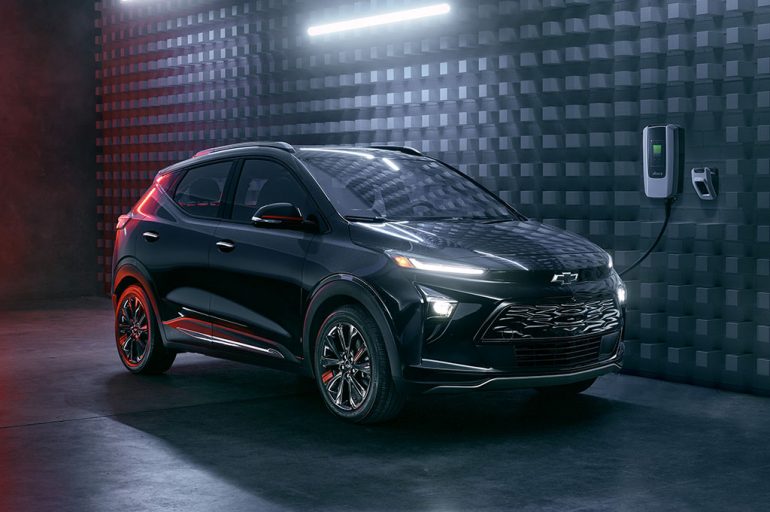
The Chevrolet Bolt EUV has once again made headlines, this time due to a recall involving its charging cable and the potential risk of shock to users. While the previous recall for the Bolt and Bolt EUV focused on battery fire concerns, this latest issue raises concerns about the safety of the charging accessory.
The recall, recently uncovered by Carscoops, pertains to certain 2022 and 2023 Bolt EUV models. The problematic component in question, identified by part number 24044913, was manufactured by Webasto Charging Systems and was included in the EUV’s charging accessory package. Importantly, the standard Chevy Bolt is not implicated in this recall.
The root of the problem lies in a disconnect between the hardware and software of the charging cable. General Motors (GM) has explained that the software may fail to halt the charging process when a user unplugs the car. This oversight could lead to a loss of grounding, potentially resulting in a shock to the person handling the cable. Fortunately, GM has reassured consumers that any potential shock would be very brief, lasting just around 1/40th of a second.
To address this issue, GM has initiated a recall affecting 10,825 vehicles, with the majority located in the United States. Thankfully, up to this point, no injuries or property damage have been reported due to this problem. The solution is relatively straightforward: authorized dealers will inspect and replace the charging cable if deemed necessary. Importantly, this recall is limited to the car’s factory-included charging cable and does not extend to public charging stations or their associated cables.
It’s worth noting that while Chevrolet has garnered significant attention for its recalls related to battery fire risks, they are not the only automaker contending with electric vehicle (EV) component recalls. In 2021, Hyundai recalled over 80,000 Kona EVs due to concerns about battery combustion, highlighting the broader challenges associated with EV safety. Additionally, Ford faced its own setbacks, temporarily halting production of the F-150 Lightning electric pickup to address a battery problem that led to a fire in one of its holding lots.
These incidents emphasize the importance of rigorous quality control and ongoing monitoring in the rapidly evolving electric vehicle industry. Automakers must continually strive to ensure the safety and reliability of their EVs and their associated components to maintain consumer confidence in this burgeoning technology.

Mike Floyd is a finance executive by trade and a car enthusiast at heart. As a CFO with a keen eye for detail and strategy, Mike brings his analytical mindset to the automotive world, uncovering fresh insights and unique perspectives that go beyond the surface. His passion for cars—especially his favorite, the Porsche 911, fuels his contributions to Automotive Addicts, where he blends a love for performance and design with his professional precision. Whether he’s breaking down industry trends or spotlighting emerging innovations, Mike helps keep the site both sharp and forward-thinking.